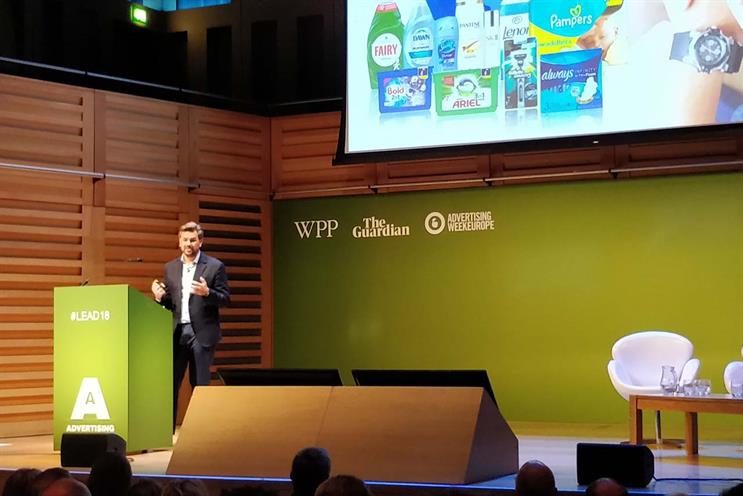
"Volatility has always been there," Feitoza told an audience at the Advertising Association event Lead 2018 in London.
With much of the event themed around the impact on the ad industry of Brexit, Feitoza put current events in the UK in context, with a comparison to the instability in his home country of Brazil.
"I’m Brazilian, and when people talk to me about the volatility of Brexit, I say: we have Brexit every week – you just have to deal with it," he said.
Feitoza argued that P&G’s success over its 180-year history was the result of always being willing to innovate – and that in today’s world, that meant finding ways to have an increased social impact.
"The question that stays is where to innovate," he said. "The answer is simple: where consumers want you to. 75% of the consumers today tell us they expect profitable companies to make profit but also give back to communities. 65% say they would pay more for responsible products," such as those produced in an environmentally friendly way.
"Our consumers’ world is changing rapidly," he added. "They are really interested in knowing what brands stand for. They want us to have a voice and transmit that voice via our brands."
Feitoza gave the example of offering audio description on its ads, thus making them accessible to the two million people in the UK with sight loss.
To demonstrate the impact, he asked the audience to close their eyes and played an ad for Pampers, the audio of which consisted only of music – which therefore would have had no brand impact for people who could not read the on-screen text.
This innovation had come about as the result of an insight provided by a P&G employee, he said.
"You can sense how a simple innovation – very simple after you have the insight – can change the life of the consumer, and ensure that marketing is a force for good," Feitoza said.



.jpg)


.jpg)